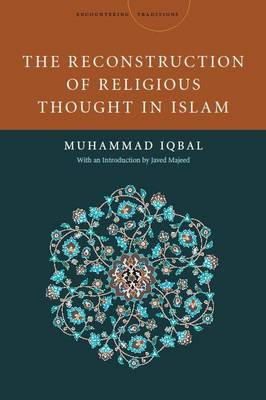
Stock image for illustration purposes only - book cover, edition or condition may vary.
The Reconstruction of Religious Thought in Islam
Mohammad Iqbal
€ 34.75
FREE Delivery in Ireland
Description for The Reconstruction of Religious Thought in Islam
Paperback. This major philosophic work by one of the most important Muslim and Western religious philosophers of the 20th century continues to exert an important literary, religious, and political influence today. Series: Encountering Traditions. Num Pages: 328 pages. BIC Classification: HRAB; HRH. Category: (G) General (US: Trade). Dimension: 215 x 141 x 18. Weight in Grams: 394.
The Reconstruction of Religious Thought in Islam (1930) is Muhammad Iqbal's major philosophic work: a series of profound reflections on the perennial conflict among science, religion, and philosophy, culminating in new visions of the unity of human knowledge, of the human spirit, and of God. Iqbal's thought contributed significantly to the establishment of Pakistan, to the religious and political ideals of the Iranian Revolution, and to the survival of Muslim identity in parts of the former USSR. It now serves as new bridge between East and West and between Islam and the other Religions of the Book. With a new ... Read more
Show LessProduct Details
Format
Paperback
Publication date
2013
Publisher
Stanford University Press
Number of pages
256
Condition
New
Series
Encountering Traditions
Number of Pages
328
Place of Publication
Palo Alto, United States
ISBN
9780804781473
SKU
V9780804781473
Shipping Time
Usually ships in 7 to 11 working days
Ref
99-50
About Mohammad Iqbal
Muhammad Iqbal (1877-1938), beloved poet of the modern state of Pakistan, was also one of the most important Muslim and Western religious philosophers of the 20th century. Javed Majeed is Professor of English and Comparative Literature at King's College, London.
Reviews for The Reconstruction of Religious Thought in Islam
"Given Iqbal's indisputable significance as a modern Muslim thinker, the Stanford edition of his Reconstruction will introduce his thought to a wide audience both in academe and among the general public in the West. It bids fair to become a milestone in the history of Iqbal studies."—Mustansir Mir, Youngstown State University
